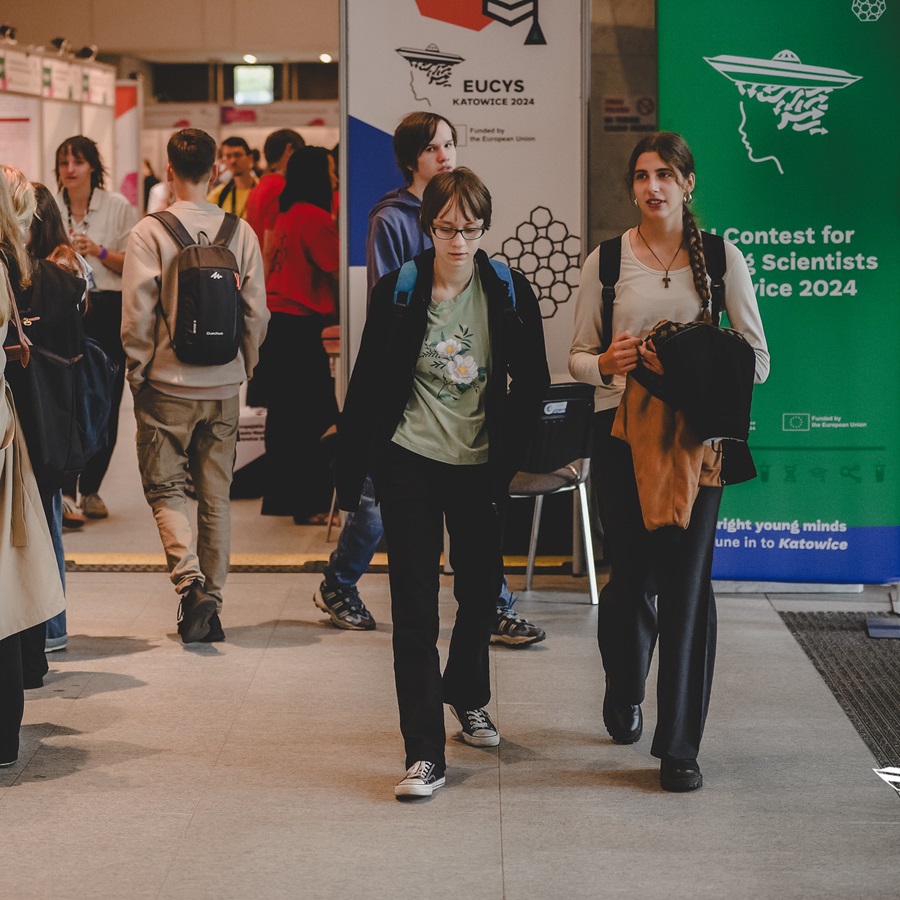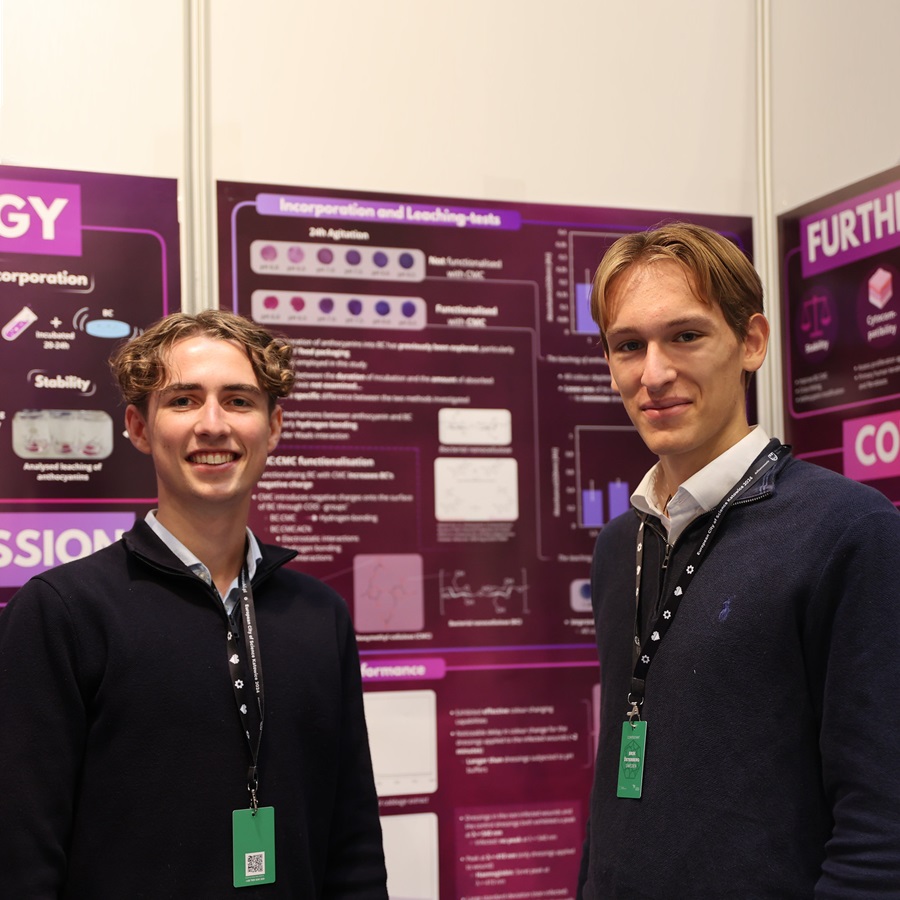EUCYS 2024
Young researchers from all around Europe showed that there is still a lot to be discovered – we just have to look from the proper perspective!
EUCYS 2024
EUCYS, the European Union Contest for Young Scientists, has been organised by the European Commission since 1989 and stands as the premier European contest for young scientists.
The 35th edition of the Contest took place in Katowice, from 9 to 14 September 2024. This prestigious event was open to the general public free of charge. Around 150 brilliant young scientists, aged between 14 to 20 years old, representing nearly 40 countries, gathered in Katowice for 6 days to present around 90 scientific projects in the field of natural, mathematical, technical, economic, or social sciences.
Opening Ceremony
Award Ceremony
Who can participate?
Are you interested in natural, mathematical, technical, economic, or social sciences? Are you conducting an interesting research project, individually or with friends? You haven't finished your first semester of studies yet? EUCYS is the perfect contest for you!
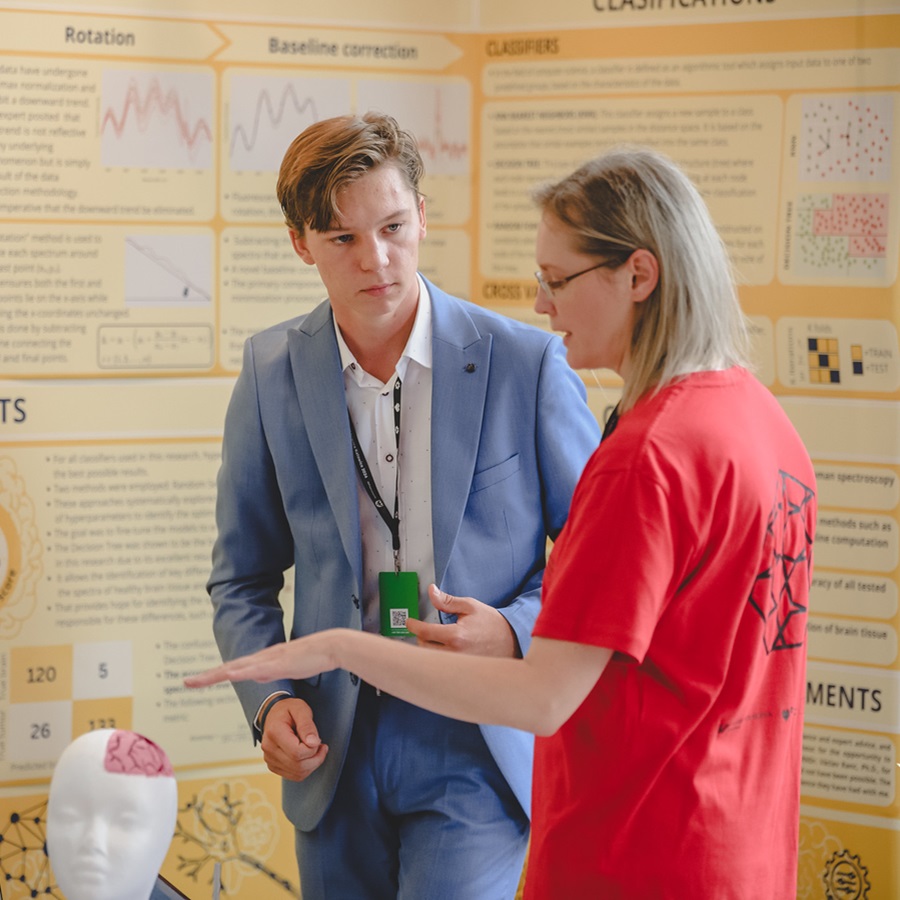
EUCYS 2024 Participants | Photo by EUCYS 2024
If you are just dreaming about your own scientific project, don’t give up! EUCYS shows that the recipe for a project that can contribute to scientific and technological progress is not as complicated as it seems. First, choose a subject that genuinely interests you. The best driving force, appearing when we are really curious about something, is commitment and passion.Then you need to expand your knowledge in a given field – talk to specialists and listen to their advice, but above all, implement new ideas. Don’t be discouraged by failures. Making mistakes is a natural part of scientific work, and as the history of great discoveries shows,they often led to the most important inventions and theories. These are the basics that can bring you to the next stage, i.e. implementing the project and submitting it to the contest.
The contest is open to people aged 14 to 20 who have won first prize in the Contest organised at national level and have been selected by the relevant national jury. Submitted works may be theoretical or experimental. In each country, the participants submitted to the EU Competition are nominated by the National Organisers. This is the first stage of the contest.
The contest can be only participated by people who have not yet completed their firstsemester of studies. Projects may be developed by individual participants or by teams of upto three people. In the case of teams, all team members must be present at the competitionso that the jury can accurately evaluate their collective efforts.Any delegation of participants under the age of 18 must be accompanied by a responsibleadult during the entire event, including the travel to and from the designated point ofdeparture. Being a team supervisor is a responsible role and requires presence at all stagesof the contest.
Aim of the contest
The primary goal of EUCYS is to encourage young people to take an interest in science and to support their scientific passions. The event helps discover international talents, whose innovations can have a significant impact on the development of science. Throughout its history, EUCYS has seen many groundbreaking projects with the potential to positively change reality. Thanks to the popularity of the event, this potential was fully used.
EUCYS is also an opportunity for young students to broaden not only research but also cultural horizons. Participating in the contest allows them to visit different parts of Europe,as the final event of each edition takes place in a different country, which is an additional attraction and advantage that allows them to improve their language skills.Participation in the contest offers young researchers the chance to meet peers with similar skills and interests. Even though the event involves competition, it encourages cooperation rather than rivalry. The organisers encourage the contestants to get to know each other and exchange experiences. EUCYS fosters long-term, international friendships and provides a unique opportunity to meet Nobel Prize winners and world-renowned experts. During various stages of the event, participants meet outstanding figures in science who can offer mentoring support and advice to help them choose their further education path.
Thanks to great media interest, projects presented at EUCYS can gain widespread publicity across Europe.
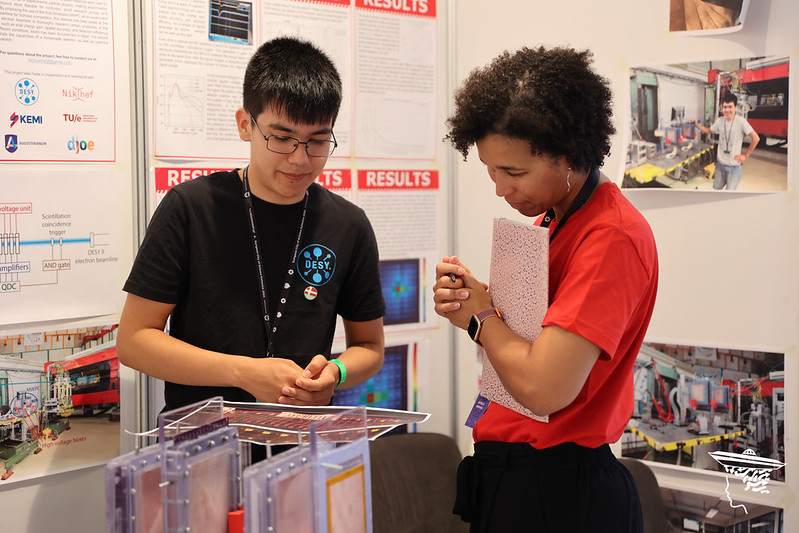
EUCYS 2024 Participant is presenting his project | Photo by EUCYS 2024
Contest step by step
EUCYS consists of two stages: national qualification stage and international finals. Submitted projects may be implemented by individuals or teams (maximum of three people). Each country can submit a maximum of 3 projects with a maximum of 6 participants.
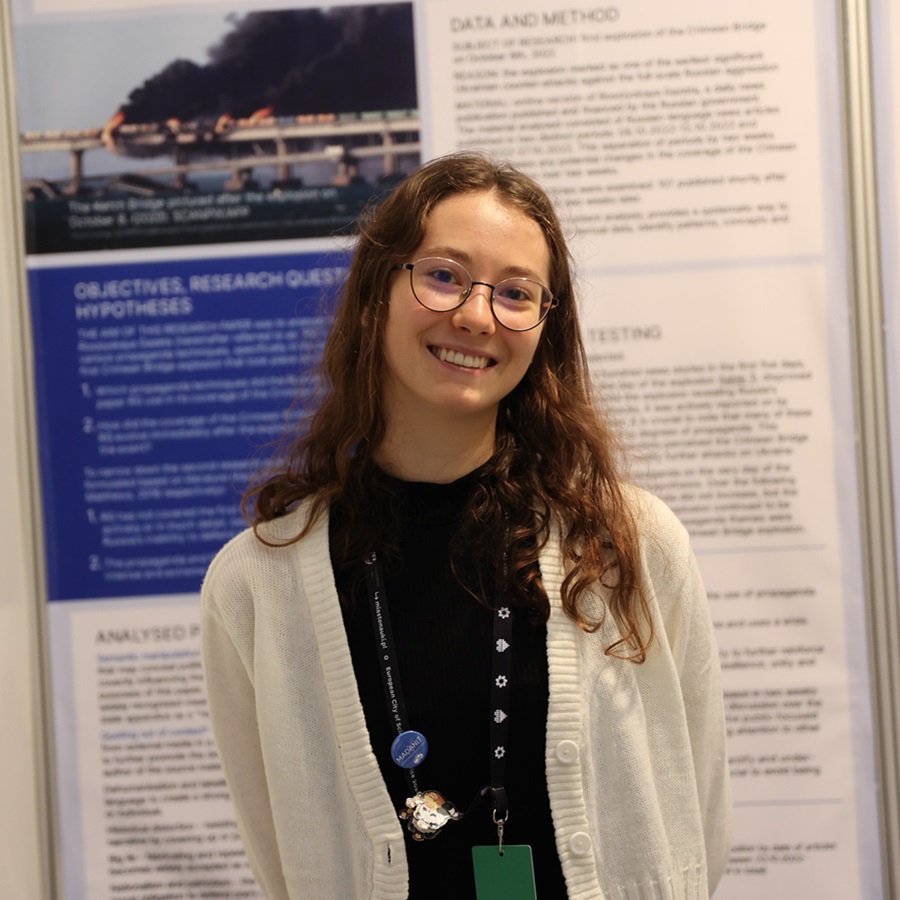
EUCYS 2024 Participant | Photo by EUCYS 2024
The contest concerns works in the field of natural, mathematical, technical, economic or social sciences. The submitted work should have previously been distinguished in a national competition or received a recommendation from a researcher with at least a PhD degree. Research can be performed at home, but projects carried out using professional equipment in research centres, e.g. during internships, are also allowed.The first stage involves sending an application form containing a detailed description of the research problem with a proposed solution, along with a presentation. All applications that meet the formal criteria are sent for review by specialists in a given field, as their opinion constitutes supporting material for the jury.
The jury, composed of outstanding scientists, professors of universities and research institutes of the Polish Academy of Sciences, as well as science popularisers, selects the finalists. People qualified for this stage present their projects to jury members and the audience during a poster session held in spring.
Then, national organisers select winners to participate in the international finals. To evaluate the project, the Commission appoints a new jury composed of 20-25 international representatives of the world of science. During the six-day international final, participants take part in official and accompanying events as well as jury sessions, i.e. meetings with representatives of the international jury assessing the projects and the method of their presentation. After interviews with the contestants, the jury selects the best projects, awarding first, second and third place prizes as well as honorary prizes.
Assessment Criteria
The national and international jury takes into account the following criteria when assessing projects:
- inventiveness and originality in choosing the topic of the project,
- creativity in the identification of and the approach to the problem,
- independence of conducted research,
- methodological soundness,
- clarity and reliability of the arguments,
- ability to analyse results.
Please remember that the project is to be presented in the form of an exhibition stand, so the jury will take into account its appropriate presentation. The exhibition presents the basic components of the project, and it may include interactive models, videos, and other demonstration materials.
The project must comply with safety requirements and allow for public display. It must not contain elements that pose a threat, e.g. experiments involving radioactive substances, dangerous equipment, toxic or carcinogenic materials. A project that in any way can be construed to be a threat to either animal or human health will be withdrawn from the Contest.
Projects that involve experiments with living animals shall only be accepted on non-human vertebrate and invertebrate animals when non-invasive experimentation has been employed.
